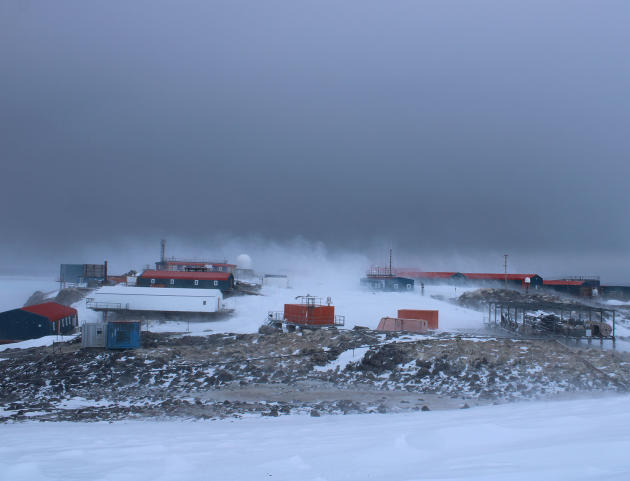This September, the polar winter is coming to an end in Adélie Land, in eastern Antarctica. Louis finds incredible charm in his working environment. Around the Dumont-d’Urville station, a stone’s throw from the penguin colonies, summer will soon be here, with peaks of 5°C which will finish dissipating the sea ice. “It’s a pleasure to be here,” slips the electronics engineer over the phone, who prefers not to give his last name.
Louis landed on the French base in 2022. The young man had applied three times without success for offers from the French Polar Institute Paul-Emile-Victor (IPEV), a public organization created in 1992 to pilot research in the poles. Each year, between 600 and 700 candidates try their luck. Like thirty to forty young people per year, Louis ended up winning the Grail: a year of mission to the South Pole. It depends on it to send data to researchers around the world, particularly on the movements of the earth’s crust.
In recent months, however, an unprecedented fire has been smoldering under the ice: the birth of a social conflict. The institute entrusts its programs in Antarctica to civic service volunteers (VSC), a status which allows them to carry out missions of general interest but which does not fall under labor law.
However, since June, 36 current or past volunteers, often loaded with diplomas, have denounced a precarious status unsuitable for the responsibilities entrusted to them. “IPEV has been dragging this pot around for a long time. It’s time for that to change,” asserts Louis. In a formal notice sent to management on September 4, the members of the collective asked to become employees. An earthquake for the institute, which persists in thinking that the extraordinary nature of the missions is the best reward.
The “little hands” of the southern lands
For years, volunteers have held this view. When he follows in the footsteps of Paul-Emile Victor, the polar explorer, in 2022, Virgile Legendre realizes a dream. This 29-year-old atmospheric chemist takes off for Reunion. Nearly twenty days at sea followed, including stopovers, then a helicopter flight to Amsterdam Island, a volcanic rock whipped by the winds of the Roaring Forties, where the IPEV has a base.
The status of VSC and his meager remuneration – around 1,050 euros net per month, 300 euros below the minimum wage – certainly seemed incongruous to him, given his skills: engineering diploma, master’s degree in the United Kingdom, experience at the Commissariat to atomic energy… “But I didn’t really care because none of us are going into this for the money,” he remembers.
You have 66.15% of this article left to read. The rest is reserved for subscribers.
